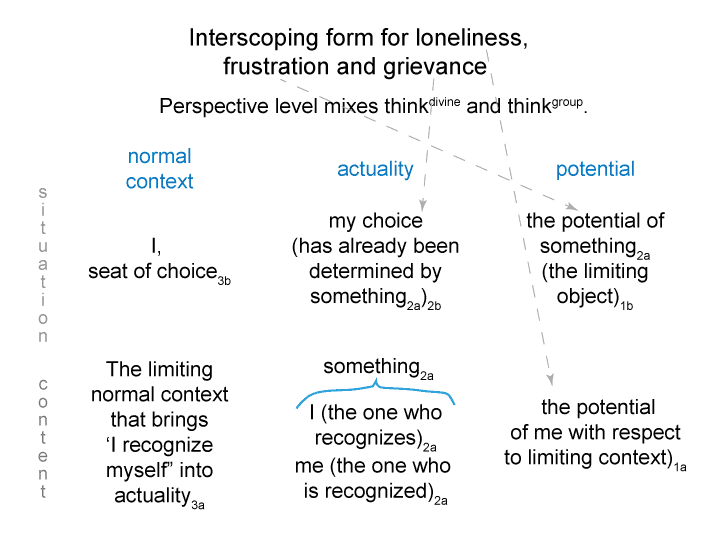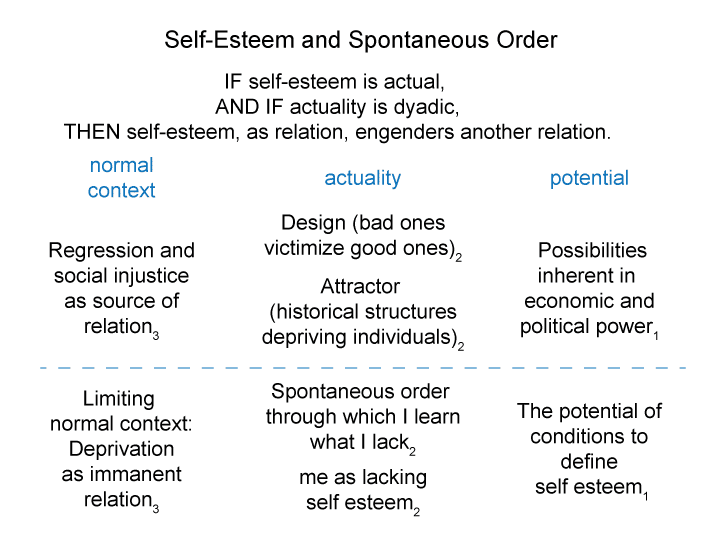Man and Sin by Piet Schoonenberg (1964) 2.1DD
Summary of text [comment] pages 68 and 69
‘Grace’, in its concreteness, is ‘my participation in another nature, that of the divine persons of the Father and the Son’.
[What is ‘grace, in its concreteness’?
I am not quite sure. It seems that grace goes with ‘thinkdivine in the perspective level (even when thinkdivine is occluded by thinkpro-object)’. It also seems that grace would go with ‘the immanence of the Holy Spirit in the anthropological relation in the dyad of objectrelation’.
Is grace somehow tied into the curious similarity between the situation and content levels of the interscoping form (of the thought experiment where ‘I choose something’) and the anthropological relation engendered by ‘God Recognizing Himself’?
Is ‘our human nature’ ‘to participate in the divine nature’?
In the next blog, the interscoping nested forms for ‘the thought experiment where ‘I choose something’ are presented.]


